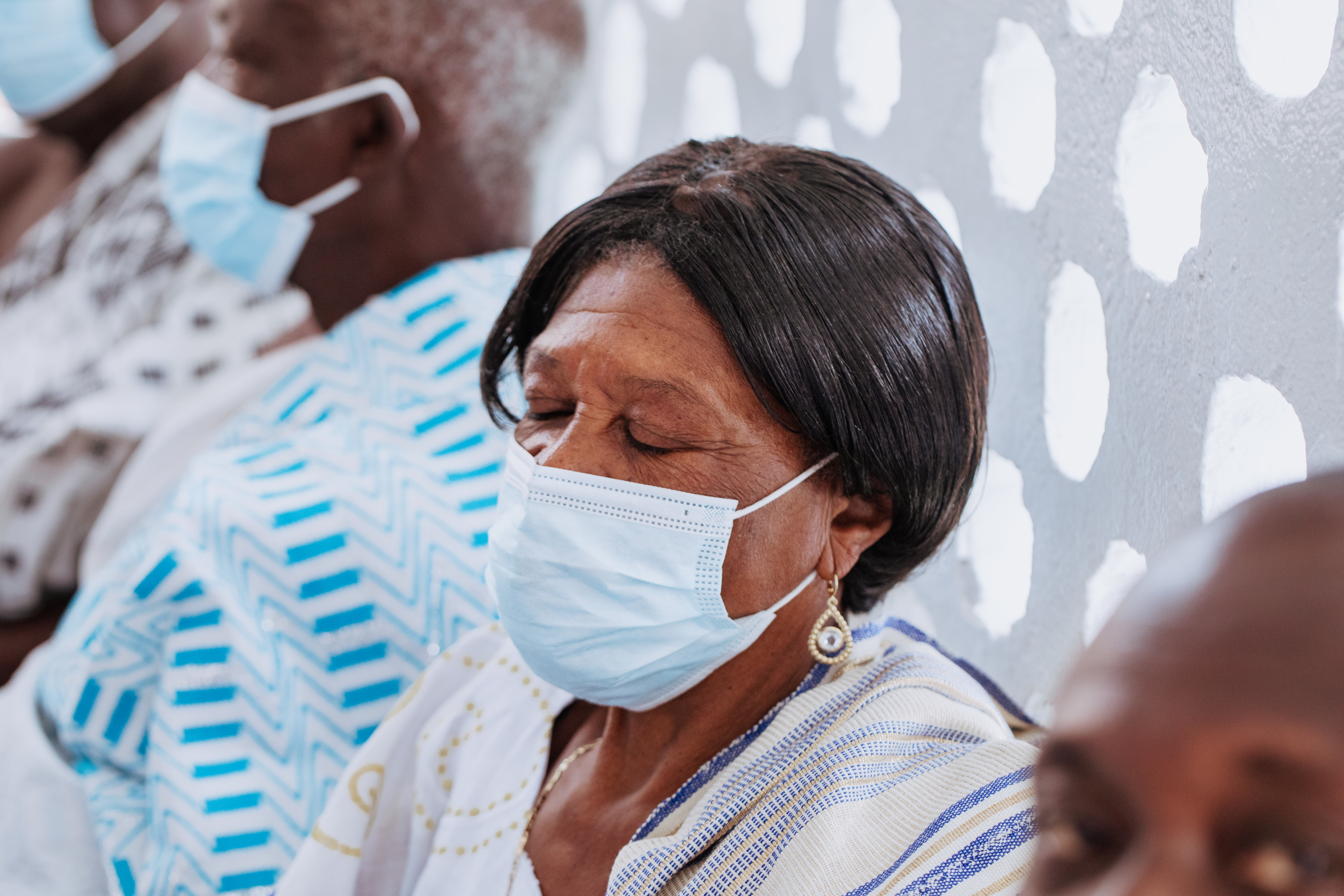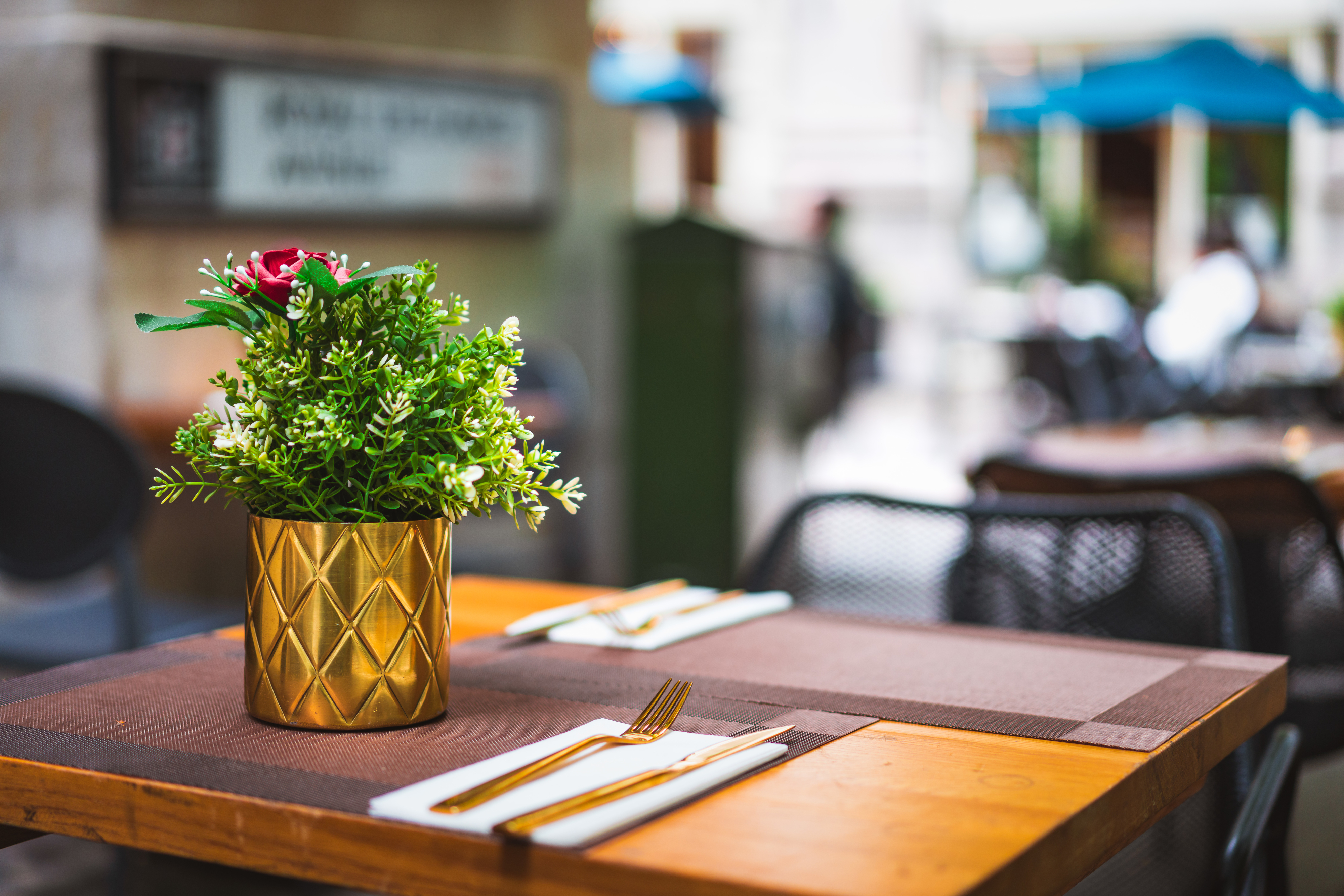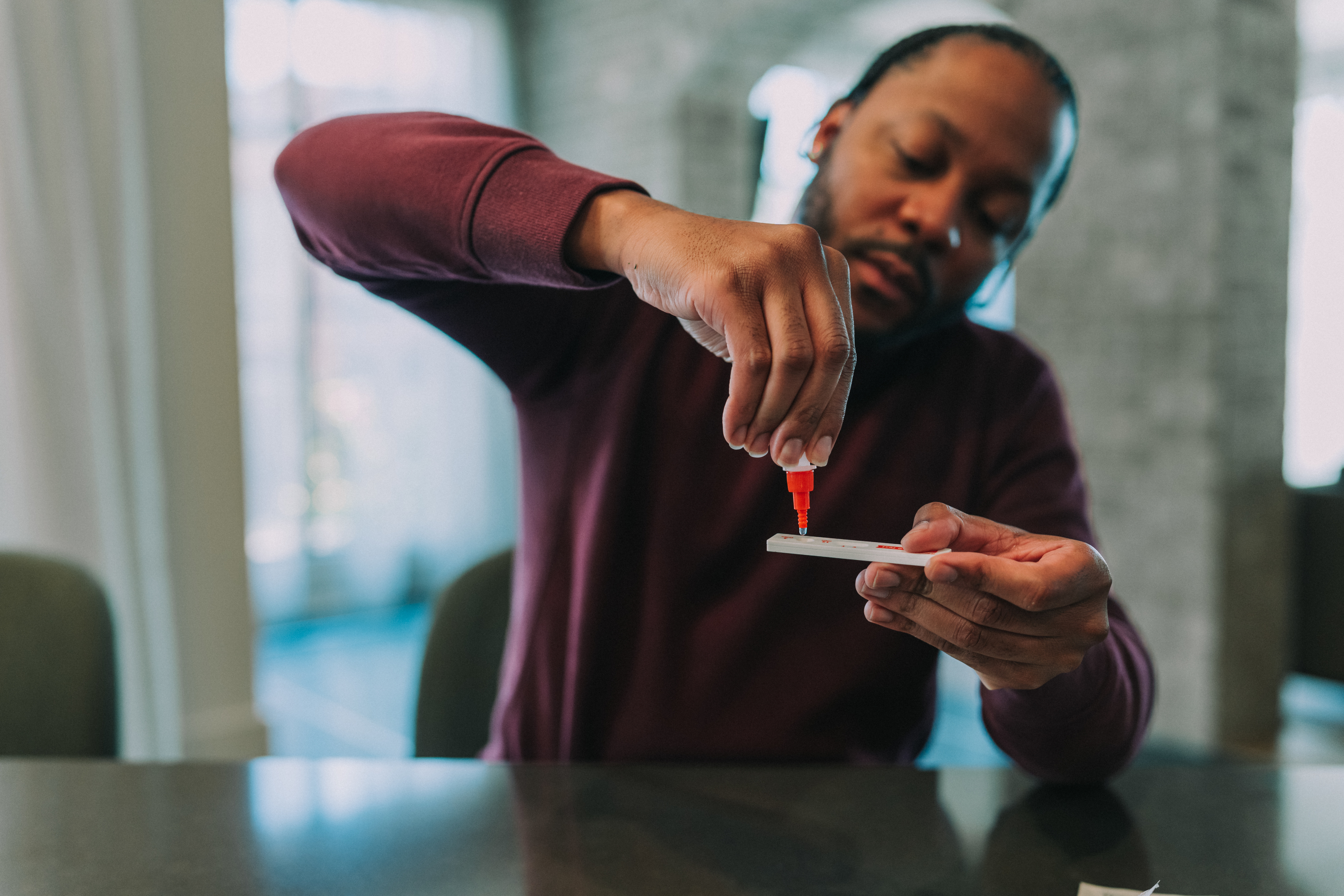Amid the latest COVID-19 wave , experts deal what steps they ’re taking to preclude illness while still living their lives .
As a result of newfangled coronavirussubvariants , we are experiencing a ascent in COVID-19 infections in the U.S. right now .
“ COVID is not pass nor will it disappear . We have to modernise a armistice with it , ” said Dr. William Schaffner , an infective disease specialist at the Vanderbilt University School of Medicine . “ presently , transmission , mostly mild , are increasing , and so are hospitalizations . A further increase is anticipate this winter . Thus , the best thing all of us can do is to take vantage of the new COVID plugger . ”

But beyondgetting the late COVID-19 shot , what should we all be doing right now to handle the ever - present risk of catching the disease and take place it on to loved ones ? After three years of living through dissimilar COVID-19 waves , it ’s totally normal to finger confused about how to manage your jeopardy in this present moment .
The regulation have exchange since March 2020 , when there were no vaccinum or treatments for COVID-19 . “ We ’re really in the age of personal province . So mortal need to gauge their own relative risk for developing serious disease , and how risk - averse they are in term of their activities , ” say Dr. Thomas Russo , top dog of the infectious disease division at the University at Buffalo .
That ’s why HuffPost touch out to infective disease experts about whattheyare personally doing to mitigate risk . Here ’s what they shared about the caution they ’re guide — and what has and has n’t change about their demeanor right now :

1. They won’t skip wearing masks in crowded spaces.
Masks remain one of the most effective first roadblock to battle the gap of COVID-19 . expert said they are bust masks more in crowded space .
Jodie Guest , senior frailty death chair of the epidemiology section at Emory University ’s Rollins School of Public Health , said she mask while traveling due to the uptick in cases .
“ There really was a bit of time in the spring when I did get on an airplane and did n’t wear a mask , ” she aver . “ And then start in the summertime , I did take off fag them again . ”

Now , she said : “ I would not go and be in an airport right on now without having a masquerade on . ”
Guest enjoin she keeps a masquerade party in her railway car and backpack for spot that could suddenly become crowded . “ Do you take your umbrella with you if there ’s a prognosis of sorry weather ? I use a masquerade the same sort of way , ” Guest said .
And if you ’re in a group at higher endangerment for severe disease , you should be more diligent about mask . Take it from Schaffner .

“ As I have gray hairsbreadth , I ’m in a higher - risk radical just on the foundation of years , so I ’ve been wearing my masquerade at indoor effect continuously , ” Schaffner suppose . “ Now that COVID cases and hospitalization insurance are increase , I ’ve been even more complete in being sure to mask up . ”
2. They won’t go on vacations without taking precautions.
Russo cited his recent cruise vacation with his married woman as an example of how he used masking to be more cautious .
He first assess personal wellness risks . Russo say neither he nor his wife has significant underlying wellness disorders , are in their mid-60s , and have intercrossed immunity from premature infections and vaccinations , so they do not believe themselves to be in the highest - risk category .
But they did mask more during the cruise to palliate the danger of getting COVID-19 .
“ There ’s indoor amusement every night in a theater — we wear mask . We go onto an lift with a bunch of other people — we get into a masquerade party , ” he said .
“ We ’ve been conservative where we can be as best as possible , peculiarly in the fact that we ’re in a higher - risk jell being on our sail ship , ” Russo order .
3. They won’t dine in restaurants without assessing risk first.
“ eatery and gym are my sort of two high - risk categories . I think we saw that too soon in the pandemic , and I do n’t cerebrate anything ’s changed , because both have the voltage to be badly ventilate space where hoi polloi are often not wearing mask , ” Russo said .
That ’s why he called restaurants an “ Achilles heel ” of COVID-19 infection risk . Russo said that earlier in the summer when case were much gloomy , he was corrode out at restaurant , but he curb that activity before his vacation as he waited to get his COVID-19 friend shot .
If you have vulnerable people living with you , you might want to ask more questions at a restaurant .
“ My wife and I are major caregivers for a household appendage who is receive cancer chemotherapy , so we ’re deliberate about going out to restaurants , ” Schaffner tell . “ When we do , we wait for table that are a bit more separate from the others , and my married woman always asks the server whether they are vaccinated . ”
Guest pronounce there are time she ’s comfortable going to eating place and sentence , like when she is preparing to visit her parent , that she is not .
“ It ’s this balance between going out and doing fun , social thing that are really important for our genial wellness and connector , and then balancing it with , ‘ Who am I putting at risk ? When am I personally at risk ? What do I have available to me to ensure I know that I am not increase other people ’s risk ? ’ ” Guest said .
4. They won’t assume they’re COVID-free if the first test comes back negative but they have symptoms.
Testing remains an important part of experts ’ strategy . centerfield for Disease Control and Prevention guidelinessayto get tested at least five full day after your last photo , even if you do not have symptoms .
“ Sometimes it can take two or three days of symptoms for that exam to come up positive . … Use that entropy to protect other multitude , ” said Dr. Lucy Wilson , a professor in the department of exigency wellness services at the University of Maryland , Baltimore County . She advised working remotely or staying home if you ’re disgusted , because “ that is helpful , not only for COVID , but for all communicable diseases , especially respiratory . ”
Part of being train right now means get at - home COVID-19 tests on paw so you do n’t need to festinate to a pharmacy .
“ I check that I have COVID-19 test at home . I employ them when I love I ’ve had an exposure or when I love I ’m going somewhere where people might be at increased risk , ” Guest said .
And if there are symptoms , these experts do n’t swear on just one psychometric test . “ If I ’ve had an unidentified photograph , and I feel sick , I require to test , and if it ’s negative , I want to retest 24 to 36 60 minutes later , ” Guest said .
It ’s also helpful tolook up the expiration date on your at - abode tests , Wilson said .
“ Realize they ’ve been extend so that you may go on that FDA site and look at the particular company and the particular test , ” she say . “ you could even look up the fate number on there . ”
5. They won’t forget how unpredictable COVID can be.
More than 40 % of adults in the U.S. say they ’ve have had a COVID-19 infection , the CDC reports― and that can help against next risk of exposure . “ It has been evince repeatedly now that prior infection and prior vaccination help prevent severity because of improved protective resistance , ” Wilson said .
But expert all advised trying not to get COVID-19 , even if you are vaccinated and have already had it , because you do n’t know how your trunk will respond to replicate infections .
Dr. Cesar A. Arias , co - conductor of the Center for Infectious Diseases Research at Houston Methodist Research Institute in Texas , said that at this decimal point , if you ’re a healthy individual , COVID-19 is unlikely to kill you if you get infected — but even if you ’re in that group , you should still nullify hitch it .
“ The infection with this computer virus are unpredictable , ” Arias enunciate . “ Last sentence , for example , I had a very bad conjunctivitis middle condition that I did not expect . That ’s why I ’m conservative about trying to not get infect . ”
Among the caution Arias said he takes are trackingwastewater datato see the level of COVID-19 spread in his community and masking while move around when there is an uptick in cases . “ My last two previous occasion when I had COVID were exactly after a trip , ” Arias said .
Guest also commend pay tending to public health officials to roll in the hay if COVID-19 type are up . “ We really involve to trust on people who are render that sewer water surveillance data to steer us to make love what ’s going on in our region , ” she said .
Wilson urge bet at theCDC chartwith the percentages of total emergency department visit due to COVID-19 , flu and RSV in your area . “ It gives you a combined statistic on the graphical record as well as single for those three , so you could just be aware of respiratory disease in your biotic community , ” she said .
And if you ’re noticing that more colleagues and friends are catch COVID-19 , that ’s another mark to take more protective measure , too . “ If you know a bunch of people that have it , then now ’s the fourth dimension to put your masque on when you ’re in full-grown , crowded situations , ” Guest said .
This post in the beginning appeared onHuffPost .